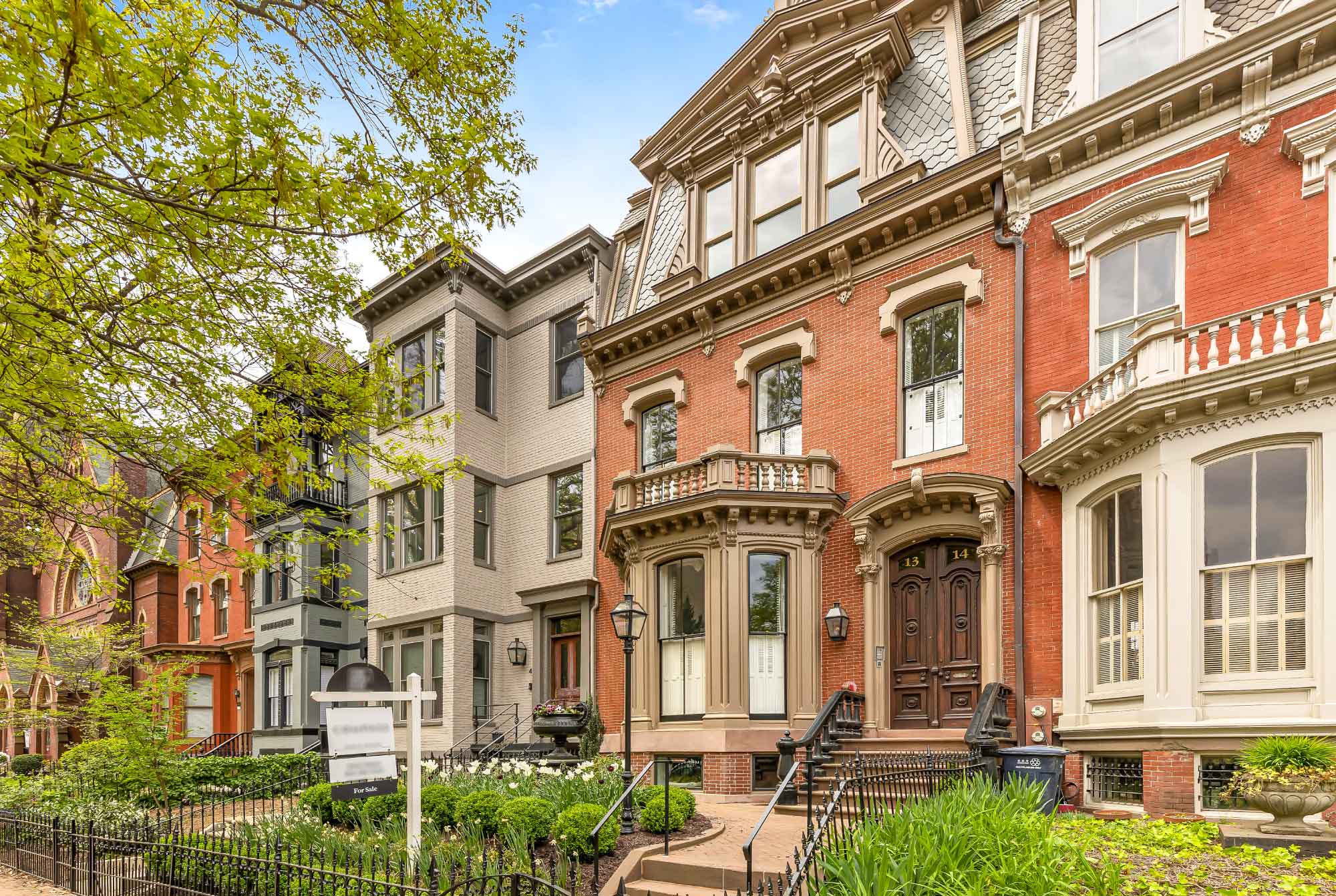When Should You Tell Your Landlord About Your Plans To Buy?

Thinking about making the transition from renting to owning? Notifying your landlord of your plans is an important step in the process, and one that depends on a few key factors, such as your lease agreement, local laws, and personal circumstances. Here’s a detailed overview of when (and how) you should tell your landlord you’re officially moving out to buy a house!
Ready to buy your first home? Click here to browse available listings in Washington, DC.
#1 Review Your Lease Agreement: Before going to your landlord, closely review your lease agreement to take stock of the following:
Lease Term: Are you in a month-to-month lease, or is it a fixed-term situation?
Notice Period: The lease will likely specify how much notice you need to give before moving out. Common notice periods are 30, 60, or sometimes even 90 days.
Early Termination Clauses: If you’re still within a fixed-term lease, check if there’s an early termination clause, which might require you to pay a penalty for breaking the lease early.
Automatic Renewal: Keep in mind that most leases automatically renew unless notice is given by a certain date.
Gearing up to buy a home? Check out these related blogs next!
- Red Flags To Look For When Buying A Home
- How Is The DC Real Estate Market Different For Buyers And Sellers?
- The Top DMV Neighborhoods For First-Time Home Buyers
#2 Notifying Your Landlord in a Fixed-Term Lease: If you’re in a fixed-term lease, you’re legally bound to stay for the duration — unless there’s an early termination clause or the landlord agrees to let you out early. Here are some steps to follow:
Give Notice As Soon As You’re Sure of the Move: Once your home purchase is finalized and you have a closing date, notify your landlord as early as possible. This gives the landlord time to find a new tenant or make alternative plans for the property.
Be Prepared for Early Termination Fees: If you’re moving before the lease ends and your lease doesn’t allow early termination, you may have to pay a fee or continue paying rent until the landlord finds a new tenant.
#3 Notifying Your Landlord in a Month-to-Month Lease: If you’re on a month-to-month lease, notifying your landlord is simpler. Here’s what you’ll have to do:
Provide Written Notice: You typically need to give 30 days’ written notice before moving out, though the notice period could be longer depending on local laws and your lease agreement.
Time Your Notice with Closing: It’s ideal to notify your landlord shortly before or after your home purchase closes. Why? You’ll want to make sure you have a place to live while the sale is finalized, not to mention avoid paying rent after you’ve already moved out.
#4 Local Laws: Some states or cities have specific rules about how much notice you must give, particularly in month-to-month agreements:
Legal Minimum Notice: Most jurisdictions require a minimum of 30 days’ notice to terminate a lease, but some may require 60 or more days.
Tenant Rights: If you’ve lived in the rental for a long time, certain states may offer protections or guidelines for how much notice you must give — we advise checking local tenant laws to confirm!
It’s a good idea to build up your real estate knowledge before you start house-hunting. Explore these related blogs for helpful tips!
- How Much Mortgage Can I Afford?
- How Many Homes Should I Tour Before Submitting An Offer?
- 10 Real Estate Agent Red Flags To Look Out For
#5 Communication With Your Landlord: Always provide written notice of your intent to vacate, even if your landlord is aware of your situation. This should include:
– The date of notification
– Your intended move-out date
– Your new contact information for future communication or deposit return
#6 Closing On Your House: The exact time to notify your landlord depends largely on when your home purchase is finalized:
After Loan Approval: Consider notifying your landlord after your mortgage loan is approved, but before actually closing on the house. This ensures you can still stay in your rental if something delays the home purchase.
After Closing Date Is Set: When you have a firm closing date, use that timeframe to your notice so that your lease ends shortly after or on your move-in date for your new home.
#7 Other Considerations:
Overlap Between Renting and Owning: You may want your rental period to coincide with getting the keys to your new home. This provides the flexibility you’ll need for moving along with the ability to mitigate any unexpected delays that may come with your new home.
Security Deposit: Be sure to leave the rental in good condition so you can recover your security deposit, which may help with moving expenses.
#8 Mutual Agreement With Landlord: If you need to move quickly or break a fixed-term lease early, consider negotiating with your landlord around the following points:
Subletting: If permitted by your lease and local laws, you could consider finding a tenant to sublet the property for the remainder of your lease.
Landlord Flexibility: Some landlords may be flexible about the lease terms, especially if they can find a new tenant quickly.
The bottom line? You should always notify your landlord as soon as you’re confident in the timeline of your home purchase and that you can comply with the lease’s notice requirements. Typically, this is around 30 to 60 days before you plan to move out, but by following the guidelines in your lease and giving ample notice, you’ll avoid legal issues and help ensure a smooth transition to your new home.
Now that you know more about the transition from renting to buying, ready to get started? Our experienced team is here for you every step of the way.
Have questions about buying a home in DC? Give us a call at 202.280.2060 or email us directly at jsmira@jennsmira.com.

Put Us To Work For You
Book a consultation with our team today.








